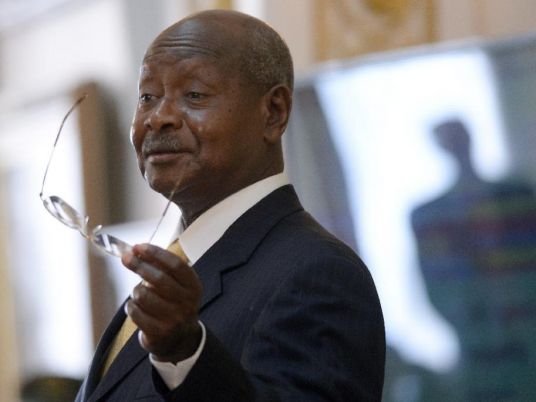It is said President Museveni, was perturbed in recent months by Egyptian President Abdel Fattah Al-Sisi and Ethiopia’s open disagreement over how to use the River Nile – whose source is in Uganda.
In the earnest, Asisi is in Uganda today for a landmark the Nile Basin Heads of State summit which seeks to ensure that all Nile riparian states sign and ratify the Cooperative Framework Agreement (CFA), also known as the Entebbe Agreement.
The leaders are participating in the long-awaited presidential summit of the Nile basin countries, after three times of adjourning it in June and after the Museveni’s repeated attempts for mediation and inviting presidents to the summit.
The presidential summit comes after seven years of suspension and failure of resolving the issues related to managing the river’s resources since the signing. In 2010, the five upstream countries of the Nile Rive—Ethiopia, Uganda, Rwanda, Tanzania, and Kenya—had signed the CFA.
In mid-May, the Nile Council of Presidents summit, which the Museveni is keen on, was to be held in mid-June, rather than on 25 May, in Kampala, after an Ethiopian request.
Ethiopia said that it needs time to study the Egyptian proposal about the Entebbe Agreement. The proposal is consistent with the international agreements and laws that organise relations between countries that share the same river.
Last week, Egypt’s Al-Sisi spoke on the phone with Museveni about bilateral relations and common interest issues between the two countries. The call included preparations for the upcoming Nile Basin Summit. President Museveni informed President Al-Sisi about his own communications with Nile basin country leaders.
Museveni also stressed the importance of increasing consultation and coordination between the two sides to boost the African common work, especially issues related to cooperation between Nile basin countries amid the Ugandan presidency of the Nile Basin Initiative (NBI).
It is understood that Egypt will today suggest a new document to be an alternative of the Entebbe Agreement.
According to local Egyptian newspaper Al-Shorouk, Egypt’s document will include the governing principles of managing the Nile River based on the international law of international rivers, such as the fair and equitable use of water and harmlessness.
The agreement outlines principles, rights, and obligations for cooperative management and development of the Nile basin water resources. Rather than quantifying “equitable rights” or water use allocations, the treaty intends to establish a framework to “promote integrated management, sustainable development, and harmonious utilisation of water resources of the Nile basin, as well as their conservation and protection for the benefit of present and future generations.”
For this purpose, the treaty envisages the establishment of a permanent institutional mechanism, the Nile River Basin Commission (NRBC). The commission would serve to promote and facilitate the implementation of the CFA and to facilitate the cooperation among the Nile basin countries in the conservation, management, and development of the Nile basin and its waters.
An official in the Egyptian government told local media that Egypt will never change its position about the agreement and will not join the agreement in its current text.
Ethiopia insists in refusing and removing the principle of previous notice to downstream countries before any projects over the river, and Egypt refuses the principle of the absolute sovereignty on the common resources.











